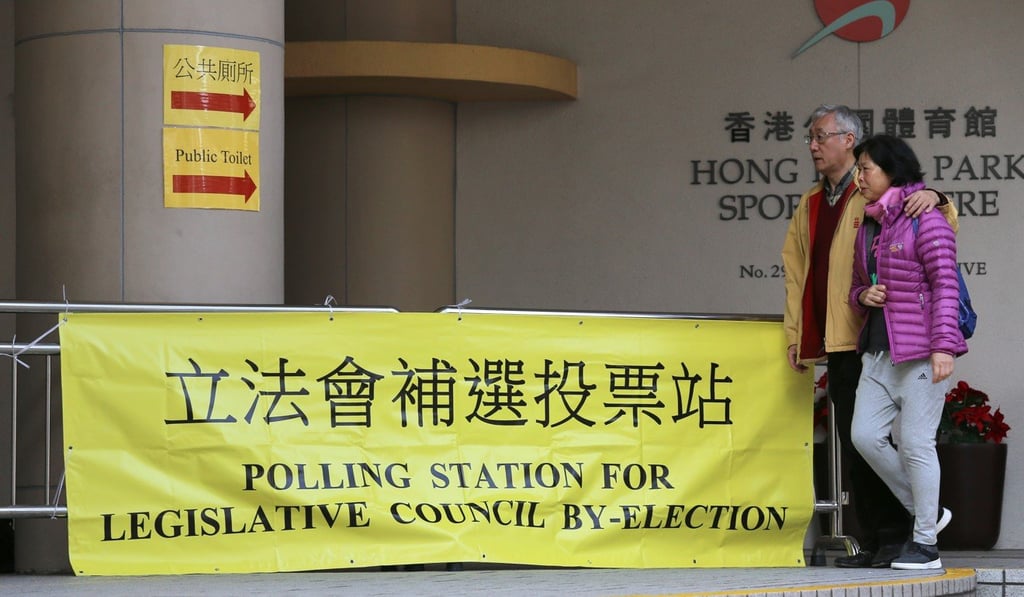Voter fatigue threatens to dampen turnout once again for West Kowloon by-election
- Only 44.3 per cent of the electorate cast votes at the last by-election in March and analysts think it could be even worse this time
- Recent controversies said to be too distant to sway voters

As 490,000 voters in Hong Kong cast their ballots on Sunday in the legislature’s by-election, the pro-democracy and pro-Beijing blocs face a neck-and-neck battle that puts the two camps’ abilities to mobilise voters to the test.
Hong Kong’s politicians have been debating issues ranging from the government’s controversial decision to prevent British journalist Victor Mallet from entering the city, to a US congressional report recommending a review of trade policy on Hong Kong, yet analysts believe that voters are still suffering from fatigue since the pro-democracy Occupy protests in 2014, and those issues are unlikely to sway voters from one camp to the other.
After the Legislative Council election in 2016, a total of six pro-democracy lawmakers were ousted for improper oath-taking. By-elections were held in March this year to fill four of the seats, as two legislators – Leung Kwok-hung and Lau Siu-lai – decided to appeal.

Lau dropped her appeal in May, triggering this by-election. The activist had also sought a comeback to Legco, but her candidacy was invalidated over her earlier call for the city’s self-determination.
Labour Party stalwart Lee Cheuk-yan, 61, was endorsed by the pan-democratic camp as Lau’s replacement, and analysts believe that the former legislator, together with pro-establishment candidate Chan Hoi-yan, 41, will come out on top, with the latter having a better chance of winning a seat in the Legco.